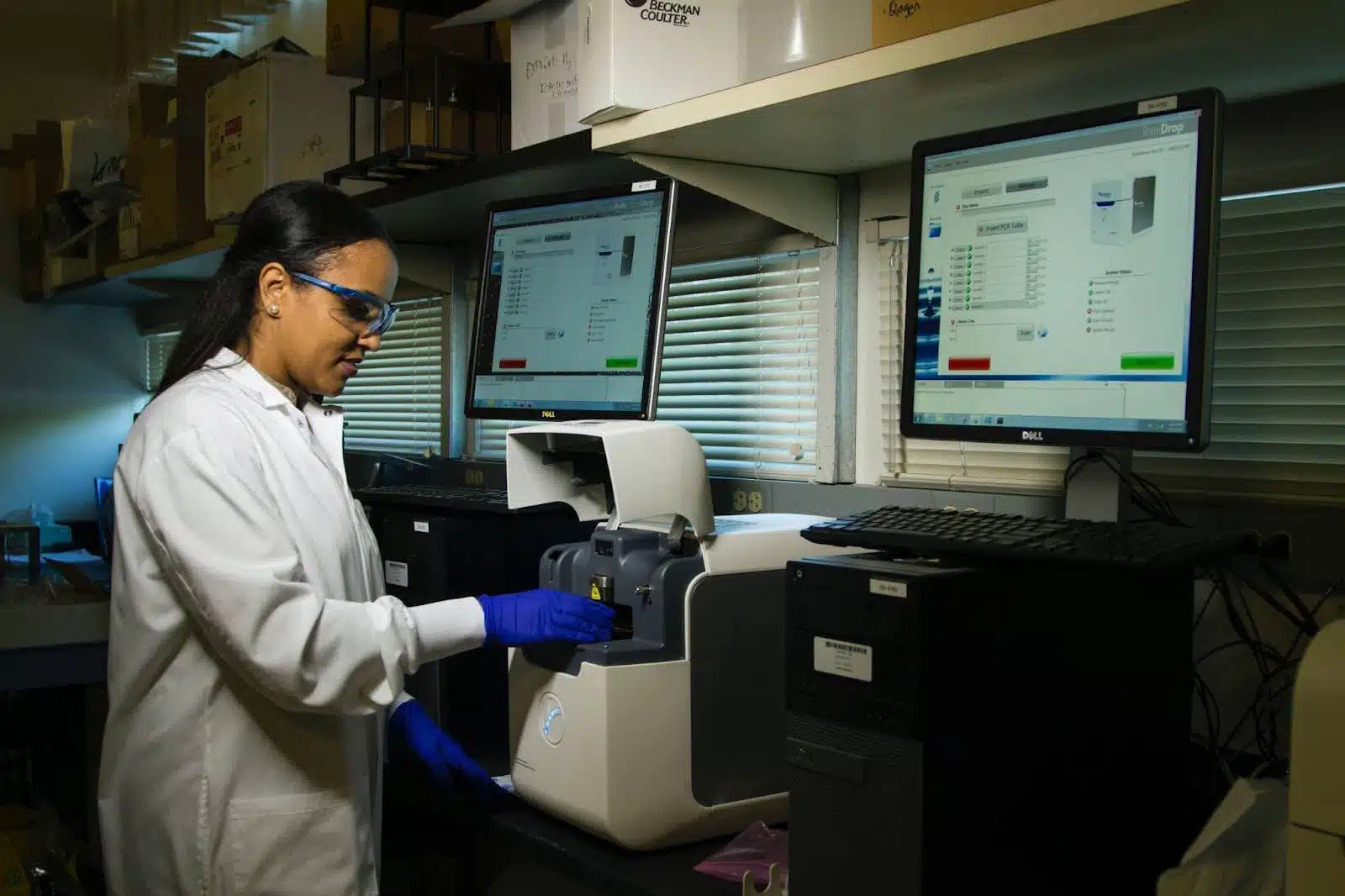Innovations in healthcare management: trends shaping the future
The need for healthcare professionals who are innovative and highly skilled in leadership practices continues to increase as the healthcare industry evolves. With technological advancements that provide more efficient and effective healthcare management solutions, these professionals must be equipped to help healthcare organisations manage their resources effectively. This is where MANCOSA’s Higher Certificate in Healthcare Management comes in. Discover more about these professionals as MANCOSA discusses why innovation is so important in the healthcare industry and the trends that are proving to be game-changers in the industry.

The need for healthcare professionals who are innovative and highly skilled in leadership practices continues to increase as the healthcare industry evolves.
With technological advancements that provide more efficient and effective healthcare management solutions, these professionals must be equipped to help healthcare organisations manage their resources effectively.
This is where MANCOSA’s Higher Certificate in Healthcare Management comes in.
Discover more about these professionals as MANCOSA discusses why innovation is so important in the healthcare industry and the trends that are proving to be game-changers in the industry.
Reasons why innovation in healthcare management is important
Innovation in healthcare management is critical because of its profound impact on the effectiveness and quality of healthcare delivery. These innovations enable healthcare companies to adopt agile and responsive systems, ensuring adaptability to dynamic challenges in the healthcare landscape.
Technological advancements, in particular, contribute to streamlined operations — improving patient recovery outcomes and the cost-effectiveness of quality services.
By leveraging these innovative solutions, management can enhance decision-making by providing healthcare organisations with data-driven insights and, in so doing, provide evidence-based improvement practices.
Also, collaborative tools and platforms facilitate increased cooperation among healthcare professionals, leading to more coordinated and integrated care. The result is a more patient-centric approach that prioritises individual needs and preferences.
Furthermore, effective management and innovation help South Africa create a sustainable healthcare system. This allows healthcare organisations to optimise their resource allocation and reduce unnecessary waste.
1. Digital health technologies: new and future trends
Several key technologies have revolutionised how healthcare services are delivered, managed, and optimised. These include some of the following:
- Telehealth: has emerged as a game-changer in improving the accessibility and efficiency of healthcare services. It makes it possible for organisations to provide remote consultations and virtual visits to monitor patients. This reduces geographical barriers and offers prompt access to medical services in real-time.
- Electronic Health Records (EHRs): The adoption of EHRs in South Africa streamlines the management of patient records and documentation. EHRs make patient data accessible to authorised healthcare professionals and organisations to locate patient information easily. It also increases patient engagement through online portals, where individuals can access their data, communicate with their doctors, and schedule appointments.
- Healthcare analytics: Involves data analysis tools to derive insights from significant amounts of data. This helps with clinical decision-making and resource optimisation. Healthcare organisations get to analyse trends and patterns in patient data, which helps them improve their services and enhance preventative care. Preventative analytics helps reduce the risk of certain diseases or assists with treatment plans through the early detection of any health issues.
2. Artificial intelligence (AI) innovations in healthcare
Artificial intelligence plays an increasingly important role in optimising healthcare services and operations. It provides innovative solutions that improve the accuracy of patient recovery outcomes. For instance:
- Diagnostics: AI significantly enhances the accuracy and speed of identifying diseases. Machine learning algorithms also aid in early health risk or disease detection by analysing enormous data sets, including images, patient histories, and health reports. For example, AI algorithms can interpret medical images such as X-rays and MRIs to accelerate diagnostics.
- Personalised medicines: AI enables the development of personalised treatment plans based on an individual’s healthcare data and symptoms. AI can identify patterns and predict patient responses to specific treatments by analysing molecular, genetic, and clinical data.
- Predictive analysis: AI-driven predictive analysis looks at historical data to identify trends and anticipate potential health risks. As a result, it could help forecast patient admissions, allocate resources more effectively, and manage bed occupancy so hospitals and healthcare centres maintain order.
- Virtual health assistants: AI-powered health assistants are designed to provide continuous patient support. These assistants work around the clock, can answer patient queries, and offer personalised recommendations to manage health conditions. For example, healthcare chatbots can answer patients’ questions about common healthcare concerns and assist with medication management.
3. Patient-centric care models in healthcare management
This allows patients to recognise their needs and make their health decisions based on their acquired knowledge.
The shift towards patient-centric care represents a fundamental change in healthcare management. It emphasises the importance of tailoring services to meet individual patient needs, education and facilitating informed decisions.
Online patient portals, remote monitoring, and personalised treatment plans are all part of the new patient-centric approaches that are currently transforming healthcare management.
This contributes to improved patient recovery outcomes and increases satisfaction. As the healthcare system continues to evolve, patient-centric approaches will become more and more essential to deliver high-quality care.
4. Data security and privacy
Data security and privacy have become more critical because of the vast amount of sensitive patient information stored in healthcare databases. Some trends and innovations that ensure the confidentiality and integrity of patient information include the following.
- Encryption and blockchain technology
- Multi-factor authentication (MFA)
- Data governance and access controls
- Privacy-preserving technologies
- Compliance with regulations, for example, POPIA
- Cybersecurity training awareness
The need for privacy in healthcare requires a multifaceted approach incorporating all of the above innovations to ensure patient trust and to protect sensitive information.
5. Professional development and leadership in health management
Professional development and leadership in health management are essential components in navigating the evolving healthcare landscape.
Thus, healthcare professionals require diverse skills to address healthcare challenges and help drive these organisations forward. Some of these skills include the following:
- Transformational leadership: The ability to inspire and motivate teams to foster a culture of adaptability and innovation.
- Emotional intelligence: The ability to navigate interpersonal relationships and manage emotions.
- Technology literacy: An in-depth understanding of integrating telehealth and data analytics for improved healthcare services.
- Interdisciplinary collaboration: The ability to collaborate and facilitate communication among diverse teams.
- Data-driven decision-making: Adept at interpreting data and driving strategic planning to improve patient outcomes.
Register for a Higher Certificate in Healthcare Management with MANCOSA
Health management courses, such as MANCOSA’s Higher Certificate in Healthcare Management, can help you gain the skills needed to excel in the evolving healthcare industry, and to be a better manager in your respective medical field.
With it, you’ll get a holistic and robust understanding of health management, including healthcare ethics, economics, management and administrative principles, and more when you choose to study healthcare management.





